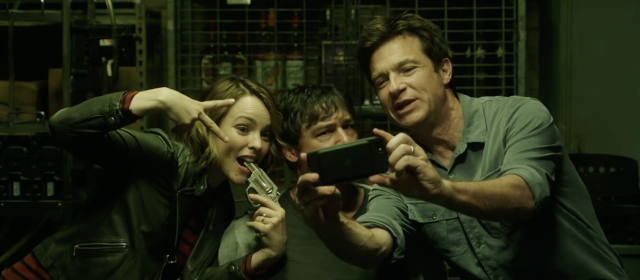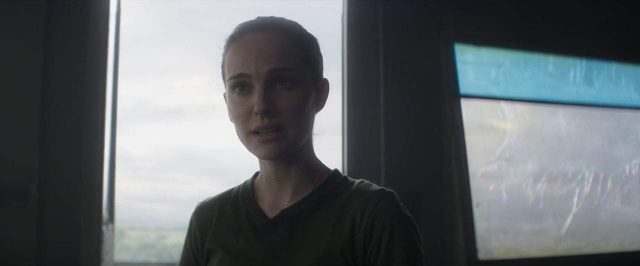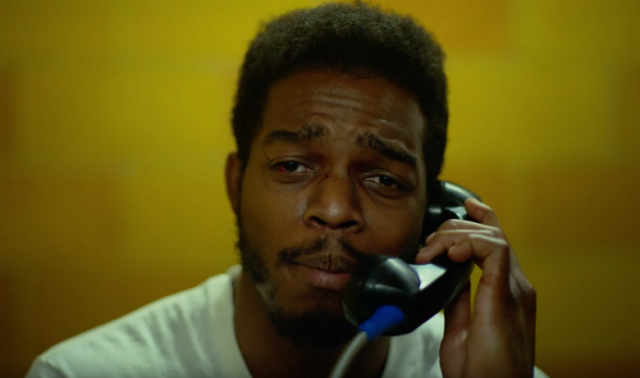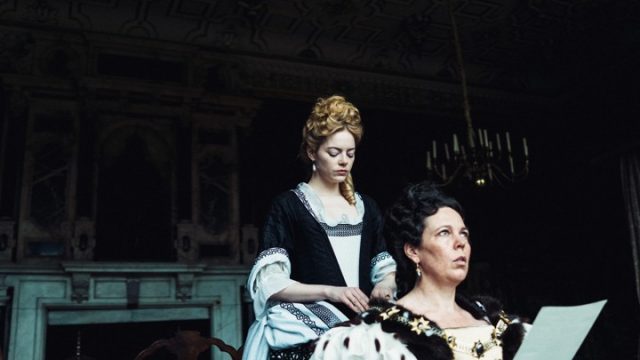Rita’s Top Ten of 2018

10. Eighth Grade
I put off seeing Eighth Grade for much of the year because, put simply, I’m not a fan of Bo Burnham. His work as a standup, while undeniably smart, mostly struck me as fatiguingly self-referential and apparently more concerned with dancing analytical circles around the idea of telling jokes than in actually telling any. Imagine my pleasant surprise when I finally watched Eighth Grade and found it not only refreshingly straightforward and sincere but also hilarious, heartbreaking, and one of the first major films to somewhat accurately depict how social media and smart phones actually function in young people’s lives. The acting is uniformly fantastic, with Elsie Fisher’s breakout lead performance holding everything together in all its vulnerable, mortified glory. Special recognition is also owed to Anna Meredith’s electronic score, which shifts gears and emotional registers with almost as much disorienting speed as an actual adolescent brain.

9. Roma
Alfonso Cuaron’s portrait of a domestic worker’s life in 1970s Mexico City is simultaneously the biggest and the smallest movie of the year. The visuals have the grand scope and kinetic energy of life in a major city on the precipice of enormous change, but the black and white palette creates just enough aesthetic distance to make us feel like we’re watching a slightly faded memory. The script places natural disasters, personal and political upheavals, and the everyday chores of running a household right next to each other and treats them with equal reverence. Perhaps most importantly, Yalitza Aparicio gives an incandescent leading performance that you can’t look away from, despite the fact that her character is largely passive. Like the rest of the movie, her presence is quietly epic.

8. Game Night
I reviewed Game Night positively for this site when it was first released back in February, but as the year progressed, it became clear to me that I hadn’t been positive enough. I’ve since rewatched it multiple times, and it gets better every time. The script is densely packed with hairpin plot twists and killer jokes delivered by a stellar cast (so stellar that picking favorites seems churlish, but I’ll do it anyway: Rachel McAdams, blossoming into the luminous screwball heroine she was always meant to be, and Jesse Plemons, splitting the difference between sympathetic and sinister with surgical precision). In a truly shocking turn of events for a big studio comedy, it also boasts a memorable score and some genuine visual style. A shaggier version of Game Night that depended wholly on its sharp script and charismatic cast would have been enjoyable enough, but directors John Francis Daley and Jonathan Goldstein really upped the ante by rolling up their sleeves and doing some honest-to-God filmmaking on this one.

7. Leave No Trace
Debra Granik’s triumphant return to narrative filmmaking is a remarkable showcase for the stunningly symbiotic performances of Ben Foster and Thomasin McKenzie, but it’s also more than that. Like Granik’s Winter’s Bone, Leave No Trace has a sense of place that’s so palpable it feels truly transporting. The film’s entire plot, which follows a father and daughter being forcibly relocated after they’re discovered living off the grid in a national park, hinges on the essential difference between living somewhere you feel comfortable versus somewhere you don’t, and on just how subjective the whole idea of comfort really is. It’s the kind of movie that doesn’t have clear cut heroes or villains, and instead lives or dies by its director’s ability to excavate nuanced, complicated emotions and hold them up the light for examination. Granik knocks it out of the park.

6. A Simple Favor
The New Yorker’s Emily Nussbaum recently coined the term girlie-o to describe, in her words, “a demographic category I just invented for all young or young-ish people who like funny arch warm neon things.” Examples of girlie-o content from the world of TV include Riverdale, Younger, and Crazy Ex-Girlfriend. The highest compliment I can pay to Paul Feig’s out-of-left-field comedic thriller is to describe it as top shelf girlie-o entertainment. If you took the pulpy mystery and girl-power-gone-rancid cynicism of Gone Girl, then added a thick gloss of jokes, bright colors, French pop music, and serious fashion inspo, you’d have A Simple Favor. Pile on career-best performances from Anna Kendrick and Blake Lively, and you’ve got a delightfully overstuffed toy box of a movie that took me totally by surprise.

5. Hereditary
Ari Aster’s stunning debut film marked him a deft visual stylist, a ruthlessly emotional director of actors, and maybe a guy who could benefit from attending family therapy. Hereditary walks in the footsteps of great family dramas and supernatural horror films that came before it, but soon overflows the banks of both those genres and commits with reckless abandon to being like five different kinds of horror movie at once, mining scares from so many different sources that we have nowhere safe or comforting to turn. Some might dismiss this strategy as throwing everything at the wall and seeing what sticks. For me, it felt like being put in a room with ten doors, only to have each door slowly bricked shut until there’s nothing to do but stand in the room with your terror and scream. But you know, in a good way.

4. Annihilation
I was one of the few people who were left cold by Alex Garland’s Ex Machina, which only set me up to be more blown away by his follow-up. Where Ex Machina was about a man-made threat with an actual agenda, Annihilation’s Shimmer is organic, operates on a scale we can’t hope to understand, and is utterly indifferent to its effect on human civilization. It might temporarily take the form of a hideous monster, but the real boogeyman here is just . . . a really major paradigm shift. In much the same way that every character in the film is affected differently by the Shimmer, Annihilation struck people as a metaphor for many different things. Is it about personal trauma, or toxic relationships, or climate change, or depression? It’s about all of those things, and whatever else the Shimmer happens to absorb.

3. If Beale Street Could Talk
Barry Jenkins’ loving adaptation of James Baldwin’s 1974 novel is visually sumptuous and emotionally devastating. The story of Tish and Fonny — two young lovers separated after Fonny is jailed for a crime he didn’t commit — is undeniably tragic. But rather than framing Beale Street as a story about the crushing forces of injustice that intrude into the characters’ lives, Jenkins focuses on the lives themselves and all the beauty and joy that are eventually subsumed by that injustice. Cinematographer James Laxton creates gorgeous, painterly compositions that are all the more arresting because they come out of a setting (namely the poorer areas of 1970s New York) that the movies usually delight n depicting as irredeemably ugly. As it turns out, allowing a story about racial oppression to include moments of light humor and unabashed loveliness doesn’t defuse its urgent message; it only reinforces it.

2. Can You Ever Forgive Me?
Based on the memoir of noted biographer and literary forger Lee Israel, Marielle Heller’s second feature starts as a quirky small-time crime caper and unfurls into a delicate but unsentimental portrait of urban loneliness. Melissa McCarthy plays Lee as a misanthrope who uses her sharp wit and devotion to the written word as a shield against being truly seen by other people; whether she’s writing truthfully about the lives of others, or telling a flat-out lie in the form of a fabricated letter, she’s always hiding behind another identity. Watching her and Richard E. Grant’s Jack — who is much more extroverted and adventurous, but no less lonely or self-sabotaging — form a dysfunctional but heart-opening friendship in spite of themselves is a true joy.

1. The Favourite
Olivia Colman, Rachel Weisz, and Emma Stone form a love triangle made out of barbed wire in Yorgos Lanthimos’ brutally funny royal farce. Lanthimos takes the broad outline of your typical stuffy costume drama (power struggles! forbidden seductions!) and injects it with his own gleefully nasty sensibility. The fisheye-laden cinematography, anachronistic dialogue, and self-consciously irreverent depiction of the rich and powerful all nudge the viewer towards a Brechtian remove from the material, while the complicated humanity of the three main performances keeps pulling you back in. Without the performances of Colman, Weisz, and Stone, The Favourite would be a fun but shallow satire of the ruling class. With them, it’s a spiky tragicomedy whose laughs stick uncomfortably in your throat.




























